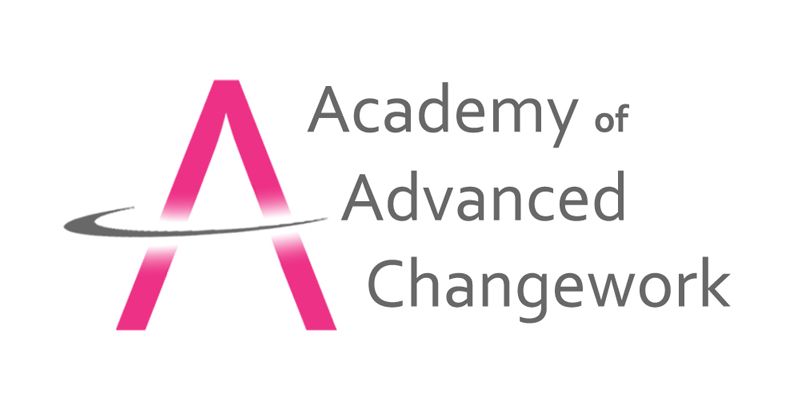
Being a reflective practitioner (self-awareness)
Working as a hypnotherapist requires wearing many hats and juggling many balls, and working as a therapist of any kind can take its toll. There’s the important and ongoing practice management tasks including marketing, housekeeping, admin, CPD, supervision, organising one’s diary and speaking with potential clients over the phone. Then there’s exposure to a whole range of issues that client’s present with such as physical illness such as coughs and colds, through to disturbing stories and experiences.
Like any industry, there is a risk of doing too much and in the worst case, burnout. Just because we are therapists and have had good training to enable others, it doesn’t inoculate us from the cumulative effects of not taking care of ourselves and heeding our own advice. Recognising the signs of stress and taking responsibility for our own self-care are essential skills of a hypnotherapist and without them, we are not likely to be doing the best we can for ourselves or our clients.
There are a number of strategies hypnotherapists can use to manage their work well and proactively take action, before the signs of stress begin to creep above the parapet. Self-reflection has to be one of the most important key elements for managing ourselves well.
Being a reflective (or 'reflexive') practitioner simply means reflecting back on you and your practice. It is all about how what we are doing (or not) is affecting our work, both positively and negatively. Reflection occurs at many stages, such as during therapy, just after a client leaves, before a session, during supervision and sometimes to satisfy the requirements of professional bodies for membership upgrades.
Reflecting on our practice enables us to identify strengths to build on, weaknesses we can address, and generally provide the best possible service to our clients. Actively engaging with self-development also keeps our interest as we grow as therapists and is a lifelong endeavour. Conversely, those therapists that are not reflective - often those who have no professional membership, no engagement with supervision or peer-vision, and those who have attended substandard course - are a risk to the public. Their disinterest or ignorance means they stagnate as there are no internal checks on their behaviour.
Being reflective enables us to improve all aspects of our work from techniques to rapport-building, empathy to efficiency, our language and body language, welcoming clients at the door to bringing therapy to a close, and so on.
During therapy (reflecting in action)
While working with clients a therapist needs to be 'looking back at themselves'. Typical questions might be:
How is the client reacting to me or my questions right now?
Am I asking relevant questions?
Am I pushing too hard here, or not hard enough?
Shall I come back to this (e.g. if the client appears to be resisting)?It was good last session when I ____ so let's have another go at that.
Am I maintaining open body language?
Am I trying too hard at matching and mirroring and risking being 'found out'?
Was that humour appropriate?
Am I jumping to conclusions, stereotyping, leading, etc?
After therapy (reflecting on action)
Being reflective after therapy may be during a quiet moment of reflection after a client leaves or during supervision. Some of the questions will be similar to those asked of ourselves during therapy but others might be presented from our unconscious or a general feel for how the session went. As the mass of content disappears from our conscious mind (all the details clients present about a given issue), we may become aware of the process. We might get a sense that we pushed a client too hard and wonder if an apology is in order next time. Or we get a sense that the client has, on balance, been avoidant or resistant and that next session needs to address this. We might realise, after the event, that we were having a bad day and not on form and we can plan ways to minimise how this affects our work in future.
Sometimes therapists notice patterns emerging across many sessions, such as a common failure to ask clients when a problem first started. Procedures and routines might be put in place to minimise this in future. While a therapist prepares for the next session with a client they will often reflect on their practice in previous sessions. Perhaps a note they made reminds them of how they 'let something go' that they really believe is central to the client's problems. They have a second chance to bring up the subject this session. Or maybe they remember previous sessions have tended to go well when permissive language is used but not so when authoritarian language is used.
As therapists, we need to be aware of the power we exert over others too. Hypnotherapists have not traditionally been particularly concerned with power while it has become an important concept in many other psychotherapies. We need, for example, to be sure that when we use an authoritarian technique it is because we think this is best for our client and not for our amusement in exercising power over people. If we do seek power, we should be considering our own processes and why we need this. It may be that personal therapy is appropriate in this instance. It is common for therapists to seek therapy. It can help us be happier all round as well as more effective in our work with clients.
There are many other personal issues we might examine as part of our reflectivity. The common denominator is that they affect us and our clients. Here are some examples:
Impatience for change
Aggressiveness e.g. when a client does not comply with our requests
Passivity - we don't like being challenging but this is for our needs rather than because it is in the best interests of the client.
Low confidence
Overly strong desire to be liked
Constant need to self-disclose
Apologetic for everything that goes wrong or for asking difficult questions
Becoming overly friendly with clients rather than maintaining professional distance
Desire to share with people what clients have said and break confidentiality
Not enjoying our work
Supervision helps with the process of identifying our needs. Through effective questioning and experience, the supervisor will encourage the supervisee to consider important aspects of their practice, some of which they might not have considered before. It can be personally as well as professionally enlightening.
Professional bodies
Some professional bodies ask therapists to reflect on their practice before they will upgrade the therapist to full or higher level membership. The therapist typically has to write an essay on what they have done well and what they could do better to demonstrate a reflective approach, self-awareness, and a commitment to improvement and learning.
Caution
All things in moderation. Some therapists, especially new ones, but also some seasoned ones too, try too hard at reflecting on what went wrong. They allow the reflective process to continue long after the appointment, perhaps even ruminating during relaxation time or when they should be asleep. Literally 'shake off' the client by physically shaking your whole body loosely when it is time to let go. Remember to congratulate yourself on what you have been doing right. If the client is still taking up your mind space unnecessarily, it’s time to book in for a session of supervision!
Further reading
Casement, P. (1985) On learning from the patient. London: Routledge. [Reflective practice and personal development from a psychodynamic perspective]
Johns, H (1996) Personal Development in Counsellor Training. London: Cassel. [Reflective practice and personal development issues from a humanistic or trans-theoretical perspective]
Rowan, J. & Jacobs, M. (2002) The Therapist’s Use of Self. Buckingham: Open University Press.
Schon, D.A. (1983) The reflective practitioner: How professionals think in action. London: Basic books.






